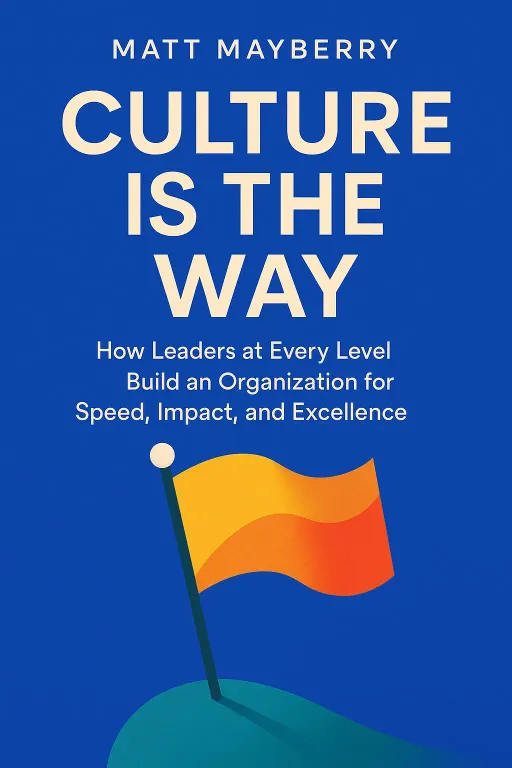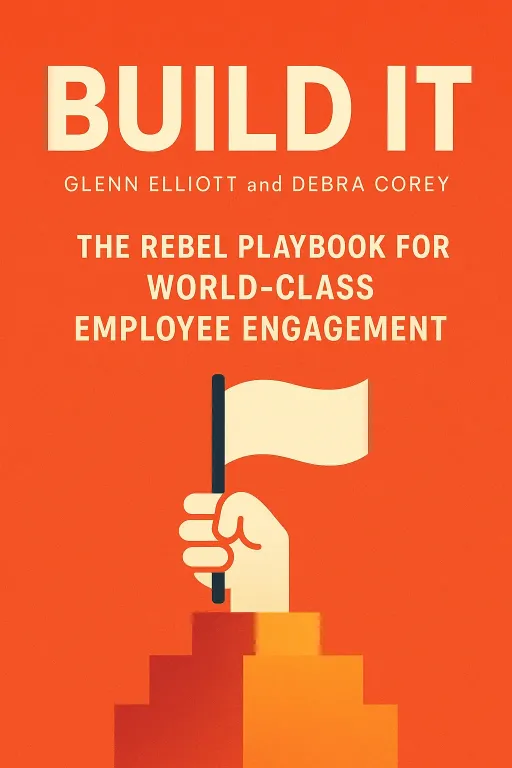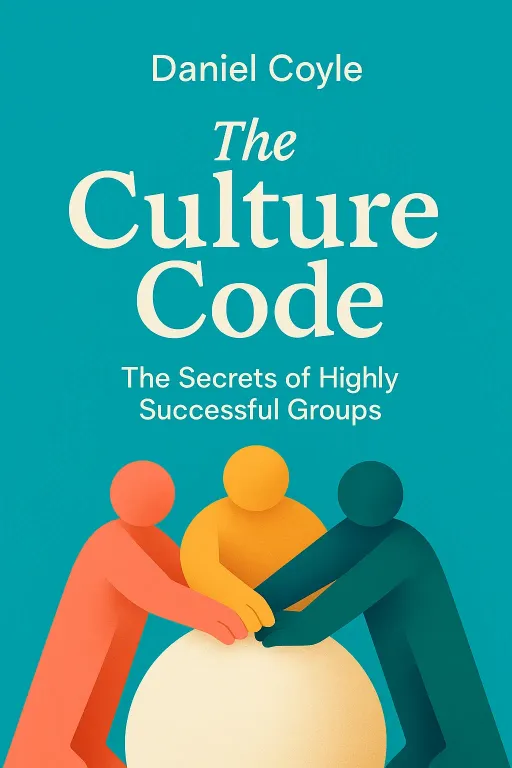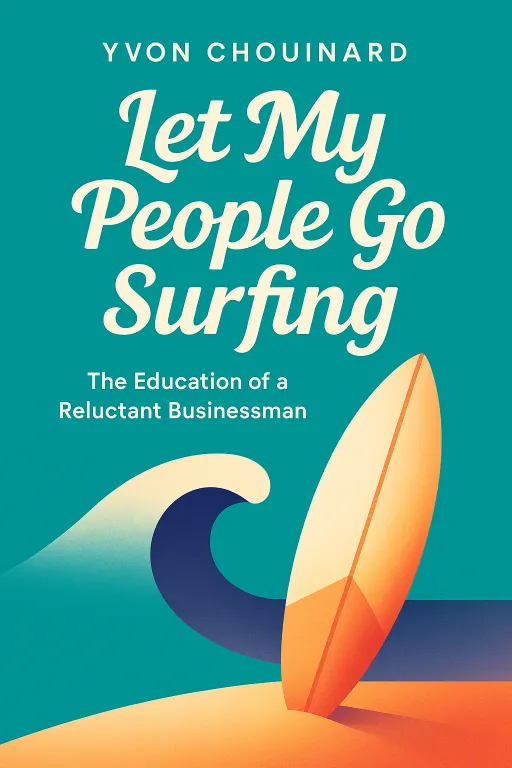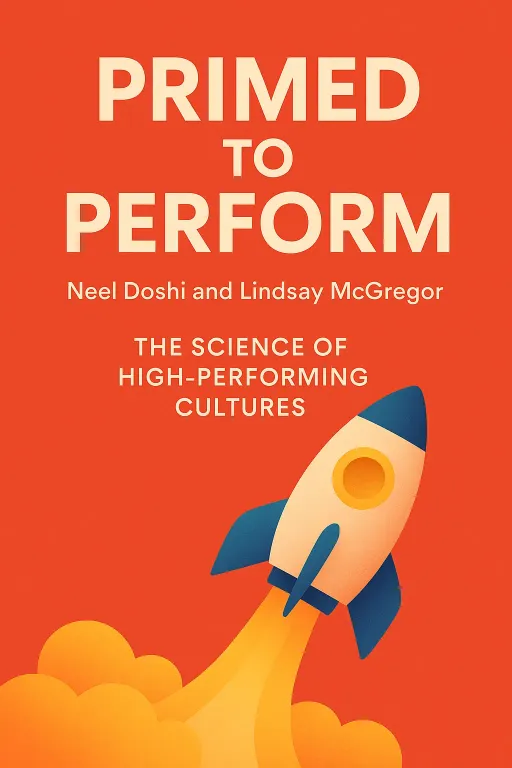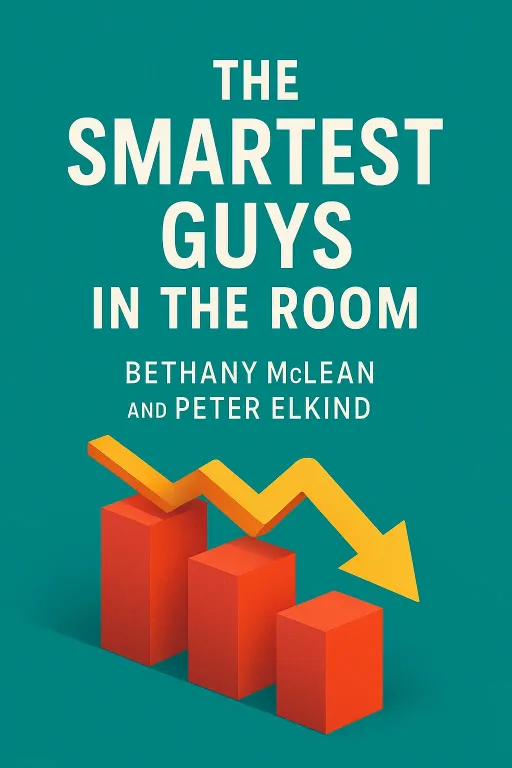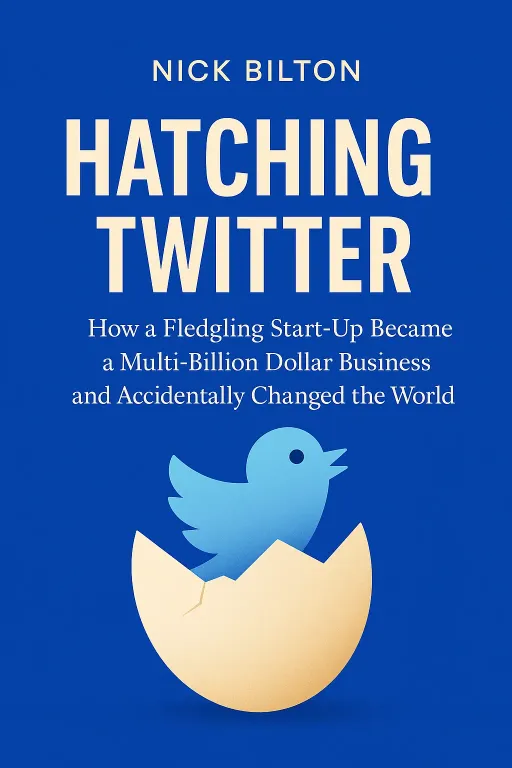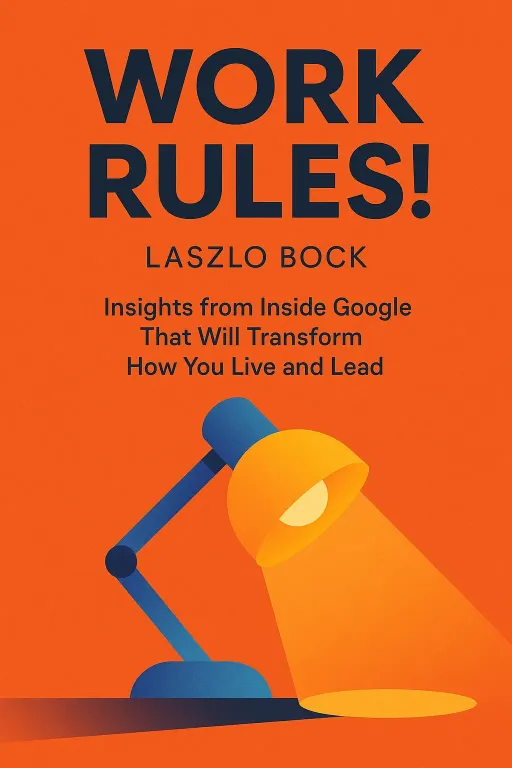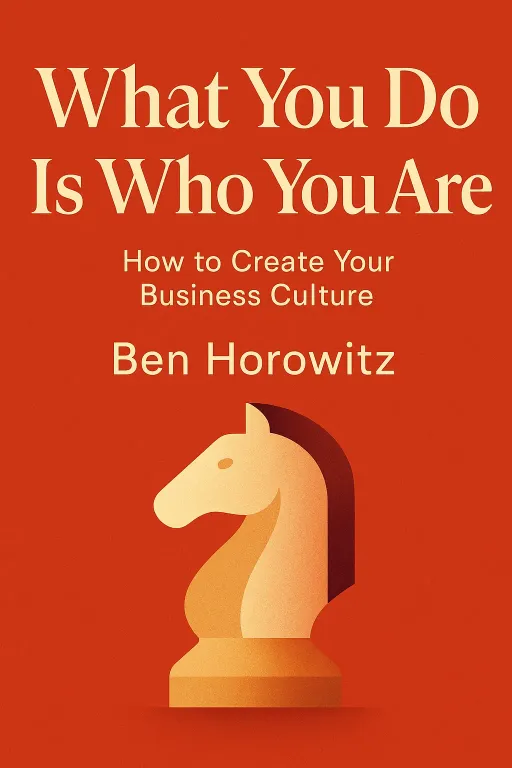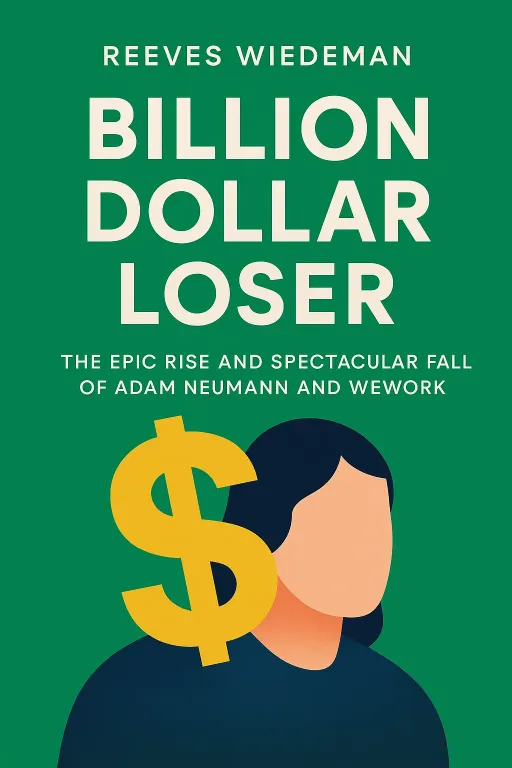
Genius System, Flawed God
12 minGolden Hook & Introduction
SECTION
Michelle: Okay Mark, five-word review of the story of Bridgewater Associates. Mark: Brilliant, terrifying, and needs therapy. Michelle: Perfect. Mine is: 'Genius system, deeply flawed god.' Mark: Wow, we are on the same page. That pretty much sums it up. It’s this wild mix of awe and horror. Michelle: That's really the heart of The Fund: Ray Dalio, Bridgewater Associates, and the Unraveling of a Wall Street Legend by Rob Copeland. It’s this explosive, deeply reported look inside Bridgewater, the world's largest hedge fund. Mark: And Copeland isn't just a business writer; he's an investigative journalist. You can feel it in the storytelling—it reads like a thriller, and it's become hugely controversial for pulling back the curtain on this secretive Wall Street giant. It's been widely acclaimed but also polarizing for its depiction of Dalio. Michelle: Exactly. He paints this picture of a founder, Ray Dalio, who starts with this incredible, almost noble, idea: to create a 'Truth Factory.' A place where ego and emotion are engineered out of decision-making. Mark: A 'Truth Factory'? That sounds both amazing and a little dystopian. How did he even try to build that?
The All-Seeing Machine: Engineering a 'Truth Factory'
SECTION
Michelle: Well, Dalio’s core belief is that everything is a machine. The economy is a machine, a business is a machine, and even a person can be understood like a machine. If you can understand the cause-and-effect relationships, you can create principles, or rules, to get the outcomes you want. His life’s work, outside of making billions, has been codifying these rules into his famous book, Principles. Mark: Right, I’ve seen that book everywhere. It’s marketed as this guide to life and work success. So he tried to turn his own company into a living embodiment of those principles? Michelle: Precisely. And one of the most ambitious attempts to do this is a story from the book that perfectly captures the whole experiment. In 2008, Dalio hires a consultant named Paul McDowell. Dalio is worried the firm is growing too fast and he needs a system to manage people. He tasks McDowell with creating a way to rate and rank every single employee on 77 different attributes. Mark: Seventy-seven? That’s incredibly specific. What kind of attributes are we talking about? Michelle: Everything from 'logical thinking' and 'humility' to 'willingness to touch the nerve.' The data from these ratings would be compiled into what they called 'baseball cards' for each employee, creating a single, ultimate score called 'Believability.' Mark: Believability. So, a number that tells you how much your opinion is worth? Michelle: Exactly. In meetings, decisions would be made through 'believability-weighted' voting. If your score was high, your vote counted more. The idea, on paper, was to create a true meritocracy of ideas, where the best ideas win, regardless of who they come from. It’s a fascinating concept. Mark: It is! It’s like something out of science fiction. You remove politics and ego from the equation and just let the data decide. What could possibly go wrong? Michelle: Well, here's the moment the entire philosophy shatters. The system goes live, and McDowell shows Dalio the results. The problem? A few employees have a higher 'Believability' score than Ray Dalio himself. Mark: Oh boy. I can see where this is going. Michelle: Dalio is furious. He calls McDowell, not to praise the system's objectivity, but to demand an explanation. He asks, and this is a direct quote that is just chilling, "Why doesn’t believability cascade from me?" Mark: Hold on. He builds a system to find objective truth, and the first time it gives him an answer he doesn't like, he demands it be changed to make him the source of all truth? That's not a truth factory, that's a mirror factory! Michelle: A mirror factory. That’s the perfect way to put it. McDowell is then instructed to rig the system. He has to program a new rule that essentially hardwires Dalio's rating to be the highest, making him numerically bulletproof to any negative feedback. The system designed to eliminate ego was ultimately broken by the founder's ego. Mark: That one story tells you everything you need to know. The ideal is beautiful, but the human reality is something else entirely. It’s the classic story of a revolution devouring its own children, except here the revolutionary-in-chief is the one setting the fire. Michelle: And that’s the central paradox. This quest for 'radical truth' often led to some truly radical, and frankly, bizarre outcomes. This idea of 'radical transparency' wasn't just about big decisions; it was about everything.
The Paradox of Radical Transparency: Surveillance as Culture
SECTION
Mark: Okay, so how does that play out day-to-day? If the big systems are flawed, what does it look like on the ground for the average employee? Michelle: It looks like a culture of total surveillance. Every meeting at Bridgewater is recorded and stored in a massive video library. Every email, every instant message is logged. And employees are encouraged, even required, to log 'issues' about each other in a public database called the Issue Log. The guiding principle is 'Don't tolerate badness.' Mark: Don't tolerate badness. That sounds good in theory, but I have a feeling 'badness' could mean just about anything. Michelle: It could, and it did. The book is filled with these unbelievable stories. One new hire, fresh out of Harvard, logged an issue that the peas in the cafeteria salad bar were wilted. Mark: You’re kidding. Wilted peas? Michelle: Not kidding. And it doesn't just get ignored. Ray Dalio himself sees the post and confronts the Chief Operating Officer, demanding to know what she’s doing about the wilted peas. She’s stunned, saying it's a ridiculous use of her time, but Dalio insists there's no such thing as a small problem at Bridgewater. Shortly after, the peas were pristine. Mark: That’s insane. But the most infamous story has to be what the book calls 'the piss case.' Please tell me it’s as wild as it sounds. Michelle: It’s wilder. Dalio discovers urine on the floor of a men's restroom and becomes obsessed with finding the culprit. He launches a full-blown investigation. He assigns dozens of staff members to stand guard outside the bathroom, taking notes on everyone who enters and exits. The cleaning crew is put on standby to mop up after every single use. Mark: This cannot be real. A hedge fund managing billions of dollars is deploying a security detail for a bathroom? Michelle: They tested new urinals. They experimented with the placement of stickers inside the urinals to give men a better target. The entire investigation was filmed and turned into a formal 'case study' for the whole firm to learn from. Mark: This is where it starts to sound less like a hedge fund and more like a high-control group. The book mentions that many former employees and critics describe the culture as 'cult-like.' It wasn't about clean bathrooms, was it? It was about total compliance. Michelle: That's the core of it. It was about proving you were aligned with Dalio's way of seeing the world. Every problem, no matter how small, had a 'root cause' that needed to be diagnosed and solved with a 'principle.' Your job wasn't just to do your work; it was to constantly diagnose yourself and others, to live inside this system of relentless scrutiny. Mark: And the psychological toll of that must have been immense. The book documents reports of employee burnout, soaring prescriptions for antidepressants, and people leaving with genuine emotional trauma. It sounds exhausting. Michelle: It was designed to be. Dalio's mantra is 'Pain + Reflection = Progress.' He believes that pushing through pain is how you evolve. But the question the book raises is, whose progress are we talking about?
The Founder's Contradiction: The Man Behind the Machine
SECTION
Mark: So where does this all come from? This obsession with control, with systems, with his own 'believability.' What does the book tell us about Dalio himself? Michelle: Copeland traces it back to Dalio's origins. He started as a golf caddy for Wall Street titans. He saw how the world of money and power worked, and he was an outsider. After some early, painful failures in his career where he was publicly wrong, he developed a profound fear of being wrong again. So he set out to build a machine, an 'idea meritocracy,' that would protect him from his own human fallibility. Mark: So the whole system, all the 'Principles,' is essentially a defense mechanism? A fortress built around his own fear of failure? Michelle: In many ways, yes. And he became the ultimate model for how to behave inside it. He championed meditation as a way to overcome the 'amygdala hijack,' that emotional part of the brain that leads to bad decisions. He presented himself as this enlightened, ego-less thinker. But the book shows a different side. Mark: The side that rigs the Believability score. Michelle: Exactly. And the side that uses 'pain' as a management tool. There's a devastating story about Katina Stefanova, a rising star at the firm. She falls behind on some hiring goals, and Dalio subjects her to a brutal public interrogation in front of her colleagues, calling her an 'idiot.' The whole thing is recorded. Mark: That’s just cruel. Michelle: It gets worse. Stefanova breaks down and runs from the room in tears. Later, Dalio edits the tape, titles it 'Pain + Reflection = Progress,' and uses it as a training tool for new hires to see if they can handle the culture. He frames this public humiliation as a necessary step in her 'natural evolution.' Unbeknownst to him at the time, she was pregnant. Mark: That’s horrifying. That’s not 'progress,' that's just breaking someone down. The book is filled with stories of people who left with severe emotional distress. It seems the 'progress' was often one-sided, benefiting the system and Dalio's sense of order, but at a huge human cost. Michelle: And that’s the ultimate contradiction. The man who wrote a bestselling book on Principles presided over a culture that many found unprincipled. He preached radical truth but, as the book details, could be deceptive when it suited him. He built a machine to eliminate human weakness, but the machine ended up amplifying his own.
Synthesis & Takeaways
SECTION
Mark: So when you put it all together, what’s the big takeaway from The Fund? Michelle: The story of Bridgewater is a grand cautionary tale. It starts with this brilliant, almost seductive, vision: what if we could create a workplace free of ego, politics, and human error? What if we could build a 'Truth Factory'? Mark: A place run purely on logic and data. It’s the dream of every engineer, every rationalist. Michelle: But the book shows the profound danger in that dream. It reveals what happens when you try to engineer humanity, when you mistake data for wisdom and control for truth. The system Dalio built wasn't just about making better investment decisions; it became about creating a specific type of person, a 'Bridgewater person,' who thinks and acts according to the machine's rules. Mark: And the machine's ultimate rule-maker was Dalio himself. The system couldn't transcend its creator. It became a reflection of his own genius, but also his own insecurities and his own hunger for control. Michelle: Precisely. The book leaves you with this powerful sense that the quest for a perfect, emotionless system is doomed, because it's being built by and for imperfect, emotional people. The human element he tried so hard to eliminate was the one thing that defined the entire enterprise. Mark: It makes you ask a really uncomfortable question: How much of our own lives and workplaces are we trying to turn into machines? We track our steps, our sleep, our productivity. Companies use algorithms to hire and fire. And what are we losing in the process? Michelle: It’s a powerful question. We'd love to hear your thoughts. What’s the most 'radically transparent' policy you’ve ever encountered at work? Find us on our socials and share your story. Mark: This is Aibrary, signing off.
